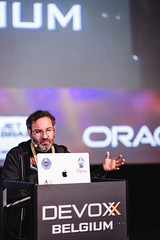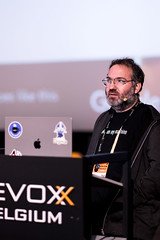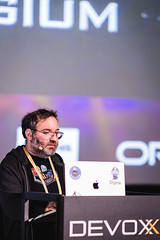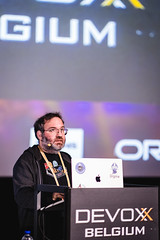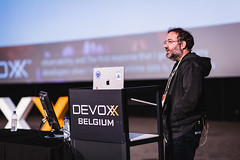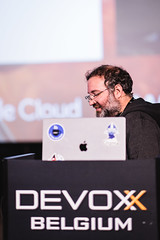Roni Dover
Digma
Holistic developer and builder with a passion for development processes and practices. Afflicted by an acute Product Manager/Developer split personality disorder that was never treated. Currently, CTO and co-founder of Digma (digma.ai), an IDE plugin for code runtime AI analysis to help accelerate development in complex codebases. A big believer in evidence-based development, and a proponent of Continuous Feedback in all aspects of Software Engineering.
OpenTelemetry and Continuous Feedback - Things you need to know about your Java code at runtime
Conference (INTERMEDIATE level)
What do you know about the code changes that were just introduced into the codebase? When will you start noticing if something goes wrong? If there are so many accessible observability sources that can tell us what the code is doing, why are we using so little of that in our day-to-day coding?
Continuous Feedback is a new dev practice that aims to make practical usage of code runtime data to shorten the feedback loop during development. It enables developers to get early data about their code changes and detect issues and regressions as-they-code. At the same time, collecting data from multiple environments, allows developers to instantly understand how their code is performing in the real world.
In this session, we'll look past the novelty of using OSS observability tools and technologies, to discuss how we can actually make them useful for developers. We'll take a look at the benefits of enabling OpenTelemetry collection for dev and test data and examine OSS tools to help analyze the application runtime. We'll go over code examples of common anti-patterns, code smells, hidden errors, and other types of problems that observability can reveal prior to merging a PR.
Ultimately, the goal should not be simply observing the application or creating nice-looking dashboards. Rather, success is in leveraging observability data in order to achieve a more effective dev process and write better code.
More Continuous Feedback is a new dev practice that aims to make practical usage of code runtime data to shorten the feedback loop during development. It enables developers to get early data about their code changes and detect issues and regressions as-they-code. At the same time, collecting data from multiple environments, allows developers to instantly understand how their code is performing in the real world.
In this session, we'll look past the novelty of using OSS observability tools and technologies, to discuss how we can actually make them useful for developers. We'll take a look at the benefits of enabling OpenTelemetry collection for dev and test data and examine OSS tools to help analyze the application runtime. We'll go over code examples of common anti-patterns, code smells, hidden errors, and other types of problems that observability can reveal prior to merging a PR.
Ultimately, the goal should not be simply observing the application or creating nice-looking dashboards. Rather, success is in leveraging observability data in order to achieve a more effective dev process and write better code.
Digma is a new free IDE Plugin for Continuous Feedback. It leverages OpenTelemetry behind the scenes to analyze your code runtime data as you run debug and test. By detecting code smells, issues, and regressions as-you-code, Digma shortens the feedback loop for developers and accelerates coding in complex codebases. The plugin dynamically lints the code and provides code-lens and analytics integrated into the IDE. In addition, Digma can aggregate existing OTEL data from multiple environments, providing constant visibility and analytics into how the code is performing in the real world: Is it being used? Which functions or components don't scale? Where are the error hotspots? etc.
We built Digma as a team of developers frustrated by the growing gap between observability and developers. Whereas observability has advanced considerably in recent years, developers are not yet applying it to its full potential as they write code. Our goal is to make observability transparent. Enable any developer to understand how their code behaves in runtime without having to know anything about OTEL, collector quantiles regressions, or anomaly detection. Instead of presenting shiny dashboards, we decided to create Digma as a platform well integrated into the dev tooling and IDE. In this session, we'll demonstrate what we've done and where we're taking the platform and use some practical code examples to demonstrate how Digma can contribute to the development cycle.
More We built Digma as a team of developers frustrated by the growing gap between observability and developers. Whereas observability has advanced considerably in recent years, developers are not yet applying it to its full potential as they write code. Our goal is to make observability transparent. Enable any developer to understand how their code behaves in runtime without having to know anything about OTEL, collector quantiles regressions, or anomaly detection. Instead of presenting shiny dashboards, we decided to create Digma as a platform well integrated into the dev tooling and IDE. In this session, we'll demonstrate what we've done and where we're taking the platform and use some practical code examples to demonstrate how Digma can contribute to the development cycle.

